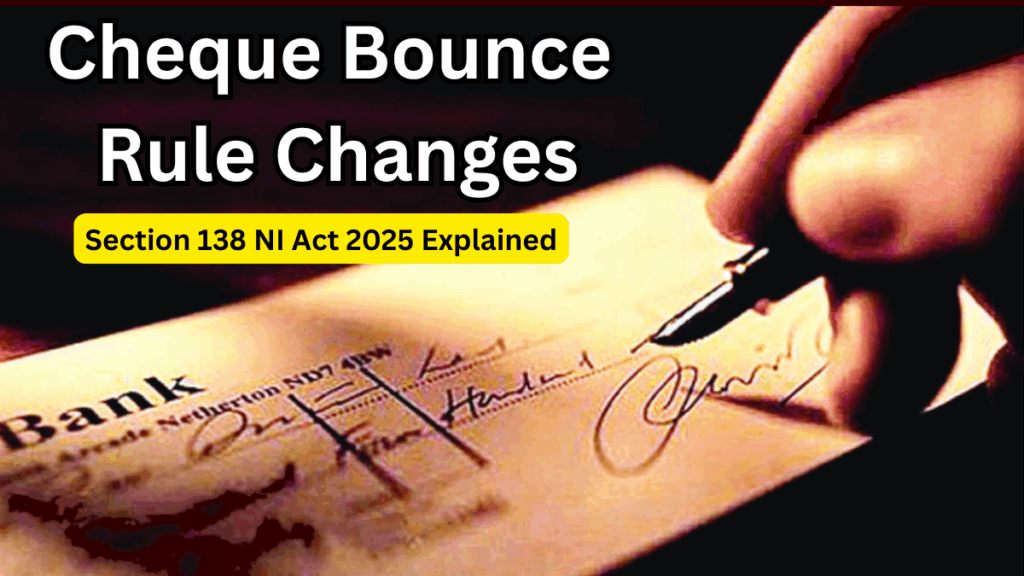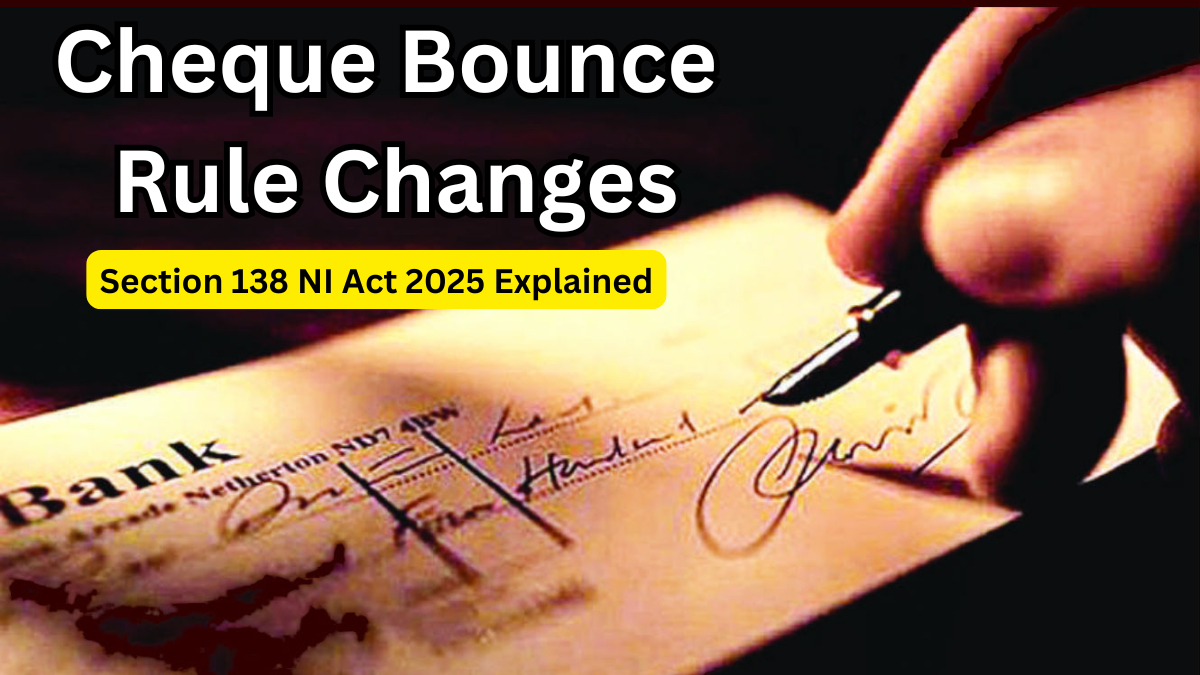Cheque transactions are a cornerstone of India’s financial ecosystem, but dishonoured cheques continue to create disputes between businesses and individuals. To address this, the NI Act 2025 amendments bring significant updates to cheque bounce Section 138, making the process faster and more efficient.
Let’s break down what these changes mean for you.

Why Were the Changes Needed?
The old provisions under Section 138 of the Negotiable Instruments (NI) Act often led to lengthy legal battles, causing delays in justice. The new amendments aim to:
-
Reduce the backlog of cheque bounce cases
-
Speed up the recovery process for rightful claimants
-
Provide a more transparent legal framework
Key Highlights of the NI Act 2025 Amendments
Here’s what’s new in cheque bounce Section 138 under the NI Act 2025 amendments:
Provision |
Earlier Rule |
New Rule (2025) |
|---|---|---|
Timeline for Filing Complaint |
30 days after receiving notice |
Extended to 45 days for more flexibility |
Penalty Amount |
Up to twice the cheque amount |
Can go up to 3 times the cheque amount |
Trial Process |
Regular court procedure |
Fast-track courts for quicker resolution |
Interim Compensation |
Not mandatory |
Mandatory interim compensation up to 20% of cheque amount |
Digital Notices |
Only physical notices accepted |
Digital notices via email/SMS now valid |
What This Means for Businesses & Individuals
The NI Act 2025 amendments are designed to help both cheque issuers and recipients.
-
For businesses: Faster recovery of dues, reduced legal hassles
-
For individuals: Easier access to justice, especially with digital communication options
-
For defaulters: Stricter penalties act as a deterrent for wilful cheque bouncing
How to Avoid a Cheque Bounce Case?
To stay clear of cheque bounce Section 138 disputes:
-
Always maintain sufficient balance before issuing cheques
-
Communicate with the payee in case of expected delays
-
Use post-dated cheques carefully and ensure funds are available
-
Respond promptly to any legal notice to avoid escalation
FAQs
What is Section 138 of the NI Act?
It deals with the dishonour of cheques due to insufficient funds or other reasons, outlining the penalties and legal process for recovery.
How have the NI Act 2025 amendments changed cheque bounce cases?
They have introduced fast-track courts, digital notices, extended filing timelines, and higher penalties to speed up resolutions.
Can digital notices replace physical notices now?
Yes, under the 2025 amendments, notices sent via email or SMS are legally valid.
What happens if I fail to pay after a cheque bounce complaint?
You may face penalties, imprisonment, and be ordered to pay up to three times the cheque amount, along with interim compensation.
Click here to learn more
